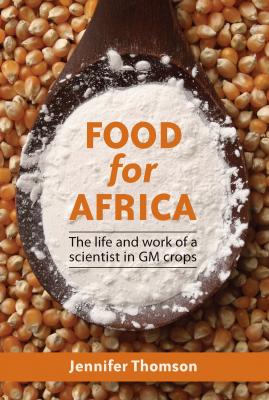Food for Africa: The life and work of a scientist in GM crops
Synopsis
Jennifer Thomson is one of the world’s leading advisors on genetically modified crops. In Food for Africa she traces, through anecdote and science, her career and the development of this area of research — from the dawn of genetic engineering in the USA in 1974, through the early stages of its testing in Europe and regulation in South Africa, to the latest developments in South Africa, where an updated Bioeconomy Strategy was approved in early 2013.
As a young scientist she chose to study bacterial genetics, negotiating her way in a very male-dominated arena. It led to her path-breaking involvement in the development of GM research in South Africa — where approximately 80% of maize grown currently is genetically modified for insect and herbicide resistance — and the spread of this technology to other parts of Africa. Experiments conducted with smallholder farmers in Kenya, Uganda, Tanzania and Mozambique now mean that insect-resistant cowpea, disease-resistant bananas, virus-resistant cassava, drought-tolerant maize and vitamin-enriched sorghum can be grown in Africa successfully.
This book describes a remarkable personal and scientific evolution and looks to a future in which GM technology allows for the possibility of achieving food security throughout Africa by means of staple crops grown in difficult conditions by smallholder farmers.
Chapters
-
Food for AfricaThe life and work of a scientist in GM crops
Downloads



